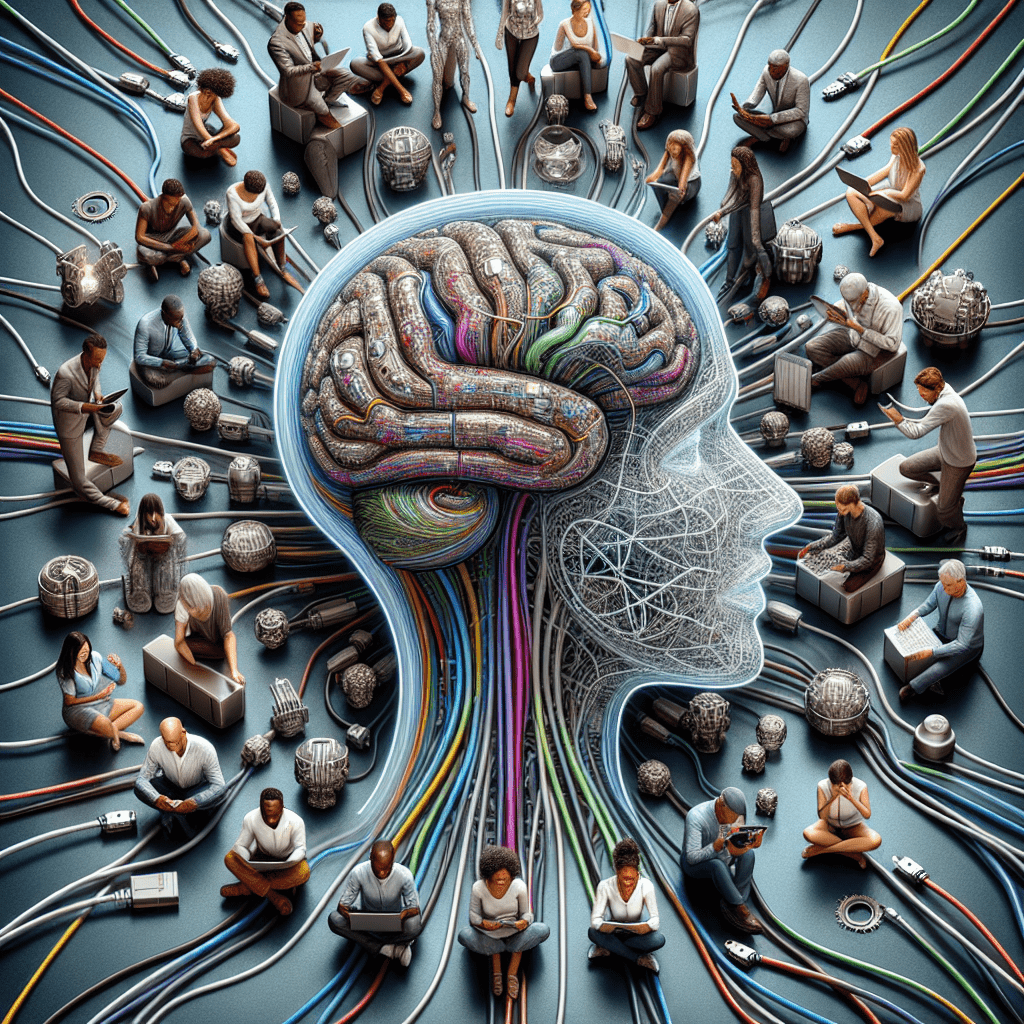Artificial Intelligence (AI) has rapidly become an integral part of our daily lives, from virtual assistants like Siri and Alexa to autonomous vehicles and predictive analytics. While AI has the potential to revolutionize industries and improve efficiency, it also raises complex ethical and societal questions that must be addressed. Understanding the human side of AI is crucial to ensure that its impact is positive and beneficial for all members of society.
The Benefits and Challenges of AI
AI has the potential to streamline processes, increase productivity, and revolutionize industries such as healthcare, finance, and transportation. By automating repetitive tasks and providing insights from vast amounts of data, AI can help businesses make better decisions and drive innovation. However, the increased reliance on AI also raises concerns about job displacement, privacy, and bias in decision-making.
One of the key benefits of AI is its ability to analyze data and identify patterns that humans may overlook. This can lead to more accurate predictions and recommendations, improving outcomes in healthcare, finance, and logistics. For example, AI-powered algorithms can analyze medical images to detect early signs of diseases or optimize supply chain operations to reduce costs and waste.
On the other hand, the rapid adoption of AI technologies can also lead to job displacement and the erosion of traditional roles. As AI systems become more capable of performing tasks that were once done by humans, there is a concern that certain jobs may become obsolete. This can create economic inequalities and disrupt labor markets, especially for workers in low-skilled and routine jobs.
The Ethical and Societal Implications of AI
AI technologies also raise ethical questions about bias, transparency, and accountability. As AI systems make decisions based on data and algorithms, there is a risk of perpetuating existing biases and discrimination. For example, if AI algorithms are trained on biased data sets, they may replicate and amplify existing social inequalities, leading to unfair outcomes for certain groups of people.
Furthermore, the opacity of AI systems can make it difficult to understand how decisions are being made and to hold them accountable for their actions. AI algorithms can be complex and unpredictable, making it challenging for regulators and users to assess their performance and reliability. This lack of transparency can erode trust in AI systems and hinder their adoption in critical domains such as healthcare and criminal justice.
Understanding the Human Side of AI
To address the societal impact of AI, it is essential to consider the human side of these technologies and to prioritize ethical principles and social values. This includes ensuring that AI systems are designed and deployed in a way that respects individual rights, promotes fairness and transparency, and minimizes harm to society at large.
One approach to understanding the human side of AI is to involve diverse stakeholders in the development and deployment of these technologies. This can include researchers, policymakers, industry representatives, and members of the public who are affected by AI systems. By engaging with a broad range of perspectives and expertise, it is possible to identify potential risks and opportunities associated with AI and to develop strategies for mitigating negative impact.
Another key aspect of understanding the human side of AI is to prioritize ethical considerations throughout the entire lifecycle of AI systems. This includes collecting and using data responsibly, ensuring the transparency and accountability of algorithms, and safeguarding privacy and security. By embedding ethical values into the design and implementation of AI technologies, it is possible to build trust and confidence among users and to promote the responsible use of AI for the benefit of society.
Conclusion
The societal impact of AI is complex and multifaceted, encompassing both benefits and challenges that must be carefully managed. By understanding the human side of AI and prioritizing ethical principles and social values, it is possible to harness the potential of AI technologies for positive and inclusive outcomes. By engaging with diverse stakeholders, promoting transparency and accountability, and embedding ethical considerations into AI systems, we can ensure that AI contributes to a more equitable and sustainable society.
FAQs
Q: What are some potential benefits of AI?
A: AI has the potential to streamline processes, increase productivity, and revolutionize industries such as healthcare, finance, and transportation. By automating repetitive tasks and providing insights from vast amounts of data, AI can help businesses make better decisions and drive innovation.
Q: What are some challenges associated with AI?
A: The increased reliance on AI also raises concerns about job displacement, privacy, and bias in decision-making. There is a concern that certain jobs may become obsolete as AI systems become more capable of performing tasks that were once done by humans. Additionally, the opacity of AI systems can make it difficult to understand how decisions are being made and to hold them accountable for their actions.
Q: How can we address the societal impact of AI?
A: To address the societal impact of AI, it is essential to consider the human side of these technologies and to prioritize ethical principles and social values. This includes engaging with diverse stakeholders, promoting transparency and accountability, and embedding ethical considerations into the design and implementation of AI systems.
Quotes
“AI is neither good nor bad, it’s the use of AI that can have positive or negative impacts on society.” – Fei-Fei Li
#Human #Side #Artificial #Intelligence #Understanding #Societal #Impact


